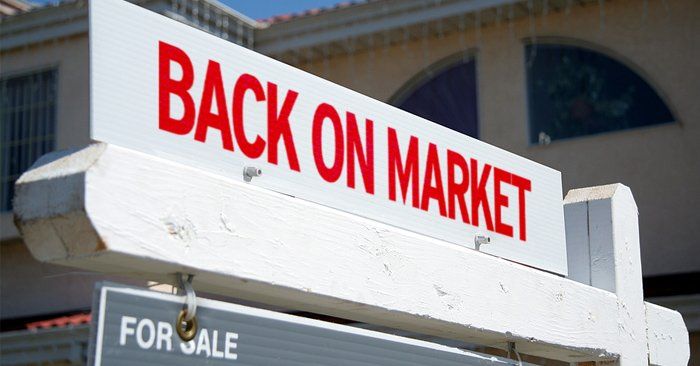If you recently lost a house in a bidding war, be on the lookout for a second chance at it!

Many headlines would have you believe that bidding wars and houses selling for over the asking price are a thing of the distant past. But it was only a few weeks ago that buyers wouldn’t have dreamed of finding a house where that wasn’t the situation.
There have certainly been signs of the market softening a bit in favor of buyers, but bidding wars are still a thing, as well as houses fetching offers over asking price—even if it isn’t happening on every listing.
So if you’re a buyer right now, there’s still a good chance you’ve “lost” a house to another buyer within the past few weeks, and you’re still feeling the sting that comes with it. You may be wondering when (or if) the market will truly give you a fair shake at getting a house…
Well, don’t lose hope! In fact, you may even get a second chance at a house you lost to another buyer.
According to this recent Axios article, nearly 15% of pending home sales failed to close in June. Whether it was due to buyers not getting their mortgage, home inspection issues, the house not appraising for the sales price, etc., many sellers found themselves looking for a new buyer or going back to the buyers whose offers weren’t originally accepted.
So if you lost out on a house recently, there’s a chance you may get a second bite at the apple!
If and when that happens for you, here are a few things to keep in mind:
- Don’t let your feelings get in the way of an opportunity. It hurts when a seller chooses another offer, and some buyers take it personally. Don’t hold a grudge and say you’re no longer interested for the sake of getting back at them for not choosing you originally.
- You may be able to negotiate a lower price than you originally offered, but don’t bank on it. There’s still a low amount of inventory, and a lot of competition, so sellers aren’t entirely desperate. If you try to lower your offer, the seller may take offense and either go with another back-up offer, or just put it back on the market.
- Don’t be too concerned with why the original buyer backed out of the deal; you may or may not get the true reason why the contract was canceled. Sure, it could’ve been due to home inspection issues, but maybe the other buyer made a big deal out of a little issue just because they had buyer’s remorse. Or maybe the buyer simply couldn’t get their mortgage because the rate changed and they could no longer qualify for the loan they needed. Just because another buyer had issues, doesn’t mean they were legitimate or will affect you, or that there’s something wrong with the house.
The Takeaway:
There are signs and headlines that the market is shifting in favor of buyers, but they’re a bit misleading. Houses that are desirable and priced appropriately in the market are still selling fast, with multiple offers, and often over asking price. So if you’re in the market to buy a home, you still need to be aggressive and make a strong offer.
However, if your initial offer isn’t accepted, don’t lose hope! With 15% of home sales falling through in June, there’s a chance you may find that the buyer they chose backs out and the seller checks to see if you’re still interested.
If that happens, be careful about lowering your offer, and don’t dismiss your second chance due to emotions or concerns about what was “wrong” with the house.
Share this post




